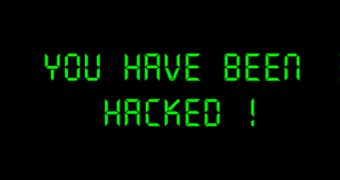Whenever a hacker collective defaces hundreds and maybe even thousands of websites all at once, few ever think about the owners of the commercial websites and the trouble they go through to deal with the effects of the hack.
We’ve contacted one of these victims and it turns out that it’s not an easy task to get the affected site back on track, in many cases the incidents seriously affecting the business workflow.
It’s not uncommon for hackers to deface random websites after gaining access to a host’s server. They post their protest messages and fancy logos thinking that they can help poor children or citizens of a country where the ruling regime enforces the laws with violence.
The sites they target are mainly from a country that’s blamed for everything, or simply from a server that is unsecure and accessible.
Kyle Wright, the owner of Sandy Tech, a company that offers IT support and web design services, says that fixing a website after it’s been defaced is not a walk in the park.
“The site got hacked by Zcompany Hacking Crew. They hacked into the server and uploaded a message to my index. They also edited it so my main site did not work,” Wright reveals.
Zcompany Hacking Crew, or ZHC, is a Pakistani hacker collective known for defacing many sites at once to display their protest messages. This was exactly the case with the Sandy Tech site.
“I’ve deleted the files, as this was some time ago, and contacted the police. They said there was nothing much they could do and they said to just carry on as normal,” he added.
“I then did some research and found the owner of the hacking crew. I asked him some questions about why he did it and what they did. They told me they did it because I lived in the UK and that they rooted the server.”
Basically, Sandy Tech is hosted on a UK server which the hackers managed to breach. It didn’t count to them that the owners of those websites have nothing to do with the war against Muslims. Many of them could have been Pakistani immigrants.
While at first glance it may seem that a deface website is not such a big deal, the repair process being an easy one for the administrators, it seems that it’s not exactly so.
“Since it went down it’s never been the same. I’ve had load of weird things happen, like if I upload a file, and then the next day go back to the file, it will redirect and say ‘server error’. I’m still trying to get it back on track after about 3 weeks of it being hacked.”
Mr. Wright is even considering changing hosts after the incident, especially since he was having a hard time accessing client profiles and invoices, even to the point where the business had to be shut down completely.
He blames the government for not doing anything to protect the country’s businesses, which reminds us of the UK’s Cyber Security Strategy revealed in November 2011, its main purpose being to make the country the
most secure place to do business.
“I think that the hackers are only doing it for attention and that our government should take note of the messages and do something about it. They moan that people are hacking into their own websites and others, but they still do nothing about it. The hackers need to be stopped!”

 14 DAY TRIAL //
14 DAY TRIAL //